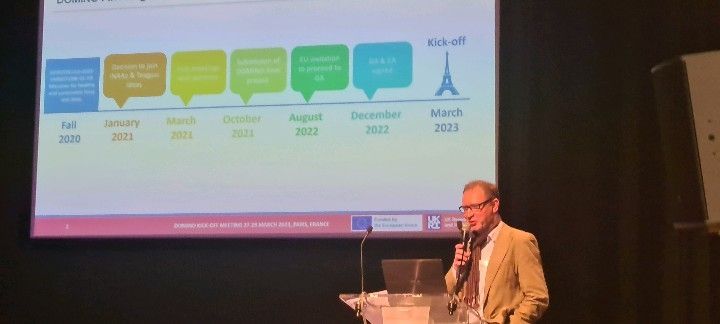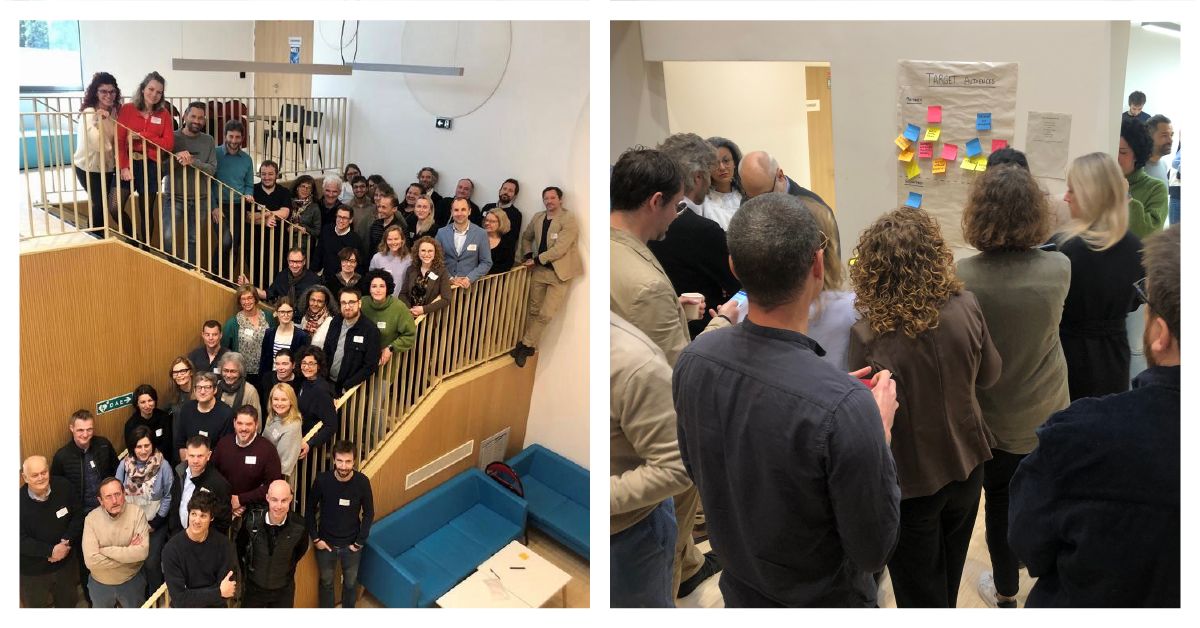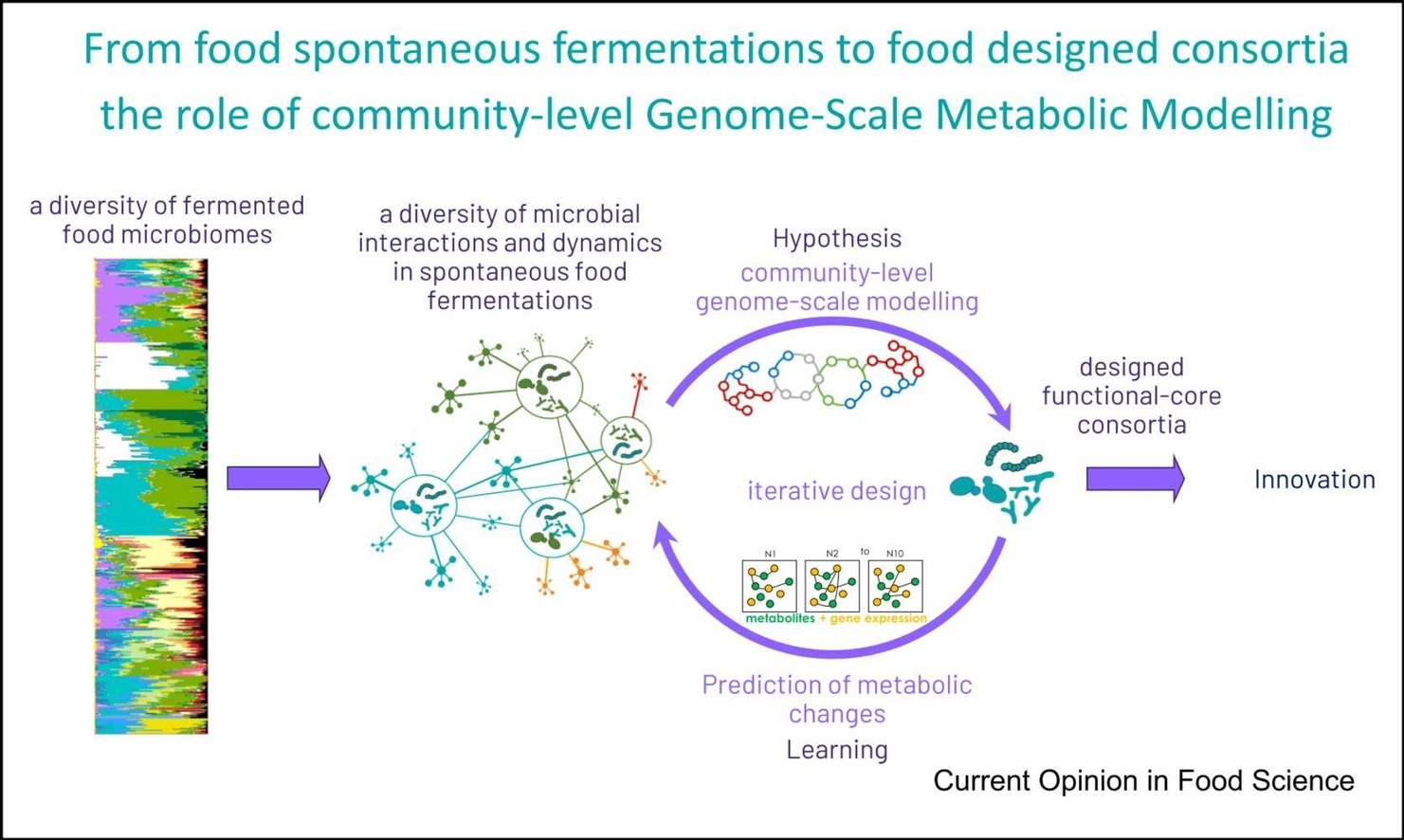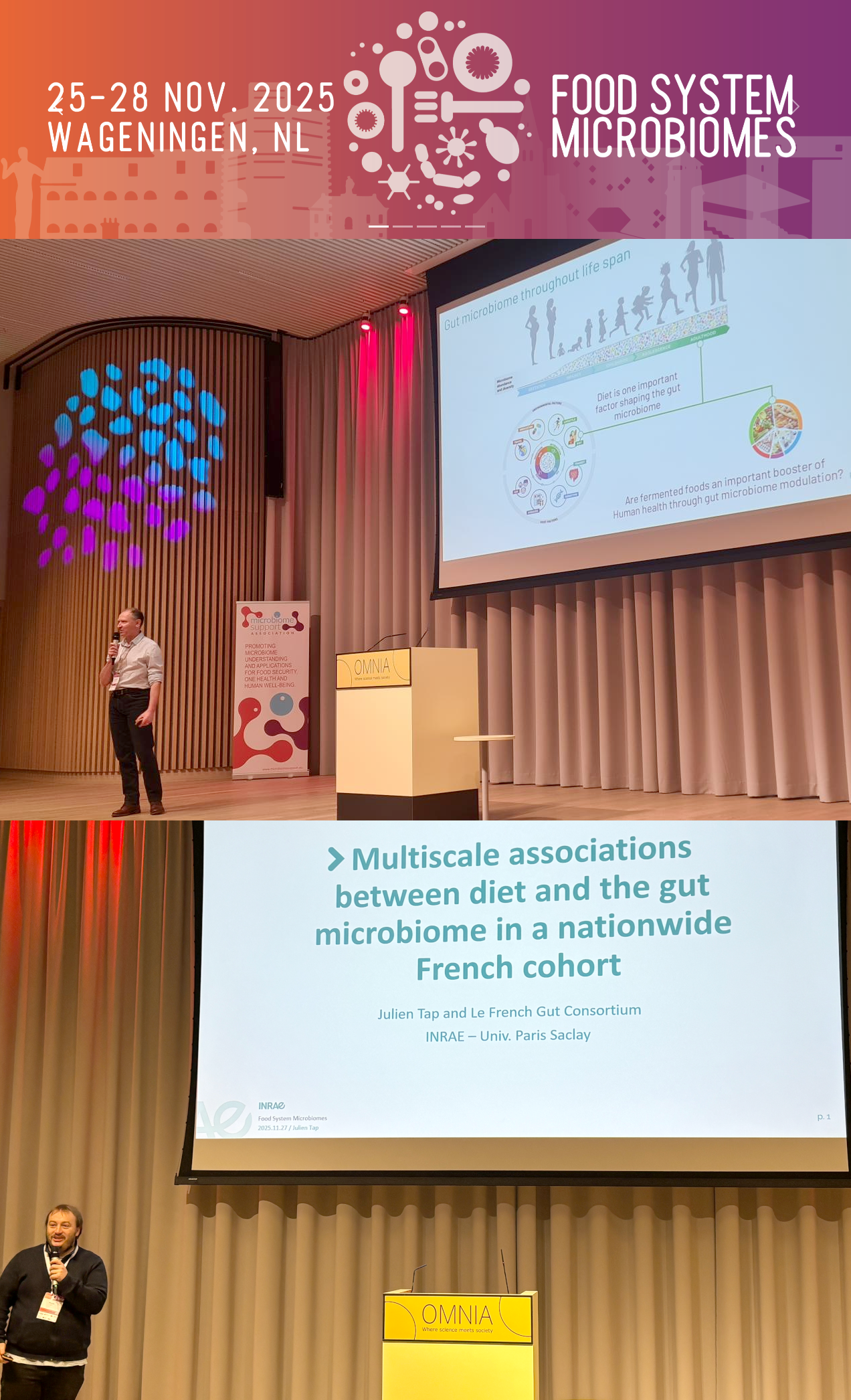Published: Mar 29, 2023 by FME Lab
DOMINO has kicked off March 27th in Paris by Stéphane Chaillou as coordinator.

Funded by the European Union, DOMINO is focused on the fascinating intersection of fermented foods, the gut microbiome, and human health. The project aims to leverage the microbial diversity of fermented foods to improve their sustainability and propose healthy diet recommendations.

The project will explore the potential benefits of food microbes for environmentally friendly and sustainable food production. To achieve its objectives, DOMINO will employ synthetic ecology approaches, a combination of health models, and input from multiple actors including living labs. The project aims to assess the risk-benefit of both old and new fermented foods.

The results of this project could have significant implications for our understanding of the role of fermented foods in human health and sustainability. By investigating the relationship between fermented foods and the gut microbiome, the project may unlock new dietary recommendations that could benefit our health and the environment.


